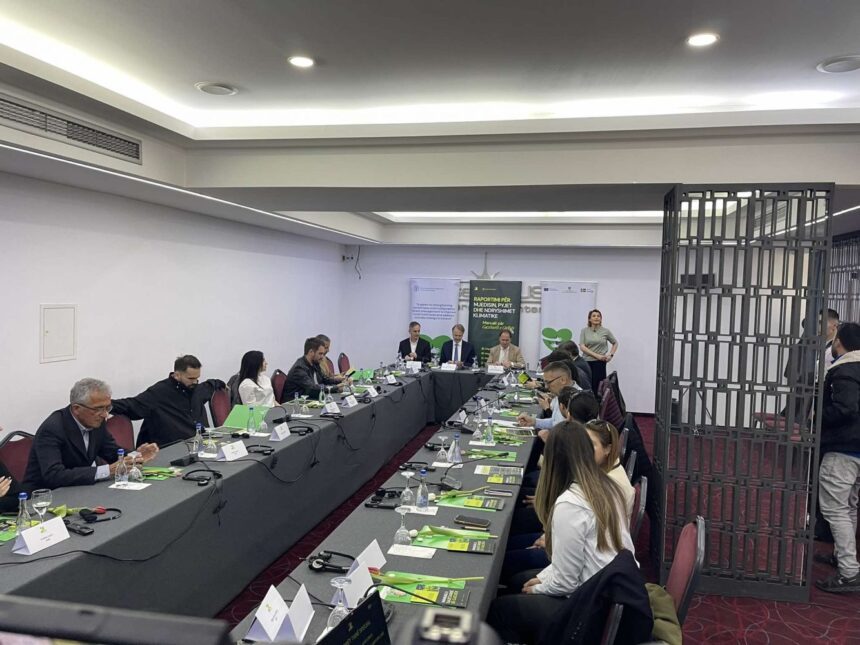BB Green Kosova hosted a training on “How to Report on the Environment, Forests, and Climate Change,” attended by journalists, experts, and international institution representatives, reports Ekonomia Online. This event aims to strengthen environmental journalism in Kosovo and encourage reporting on issues such as deforestation, pollution, and climate change.
Aivo Orav, EU Ambassador to Kosovo, emphasized the importance of media in building environmental power and supporting sustainable systems. He stated that strong, investigative reporting is key to preventing misunderstandings and the neglect of environmental matters.
“Media plays an important role in building environmental strength, maintaining sustainable systems, and influencing policies that affect our environment, our surroundings, and ultimately, our future. Journalists are not only producers of information but also agents of change, accountability, and action. Without strong, informed, and investigative reporting, these issues could remain unclear or misunderstood,” said Ambassador Orav.
He also encouraged young journalists to explore this important field, stating that the future of critical journalism lies with those willing to learn, experiment, and challenge the status quo. “Your fresh perspectives and efforts can help shape how Kosovo and the world respond to the environmental challenges we face today. Environmental issues must be at the top of our agenda; they are not optional, they are essential. Your work has the power to bring about real change, ensuring that the environment, communities, and climate get the attention and protection they fully deserve,” he added.
Jonas Westerlund, Ambassador of Sweden to Kosovo, raised concerns about the destruction of forests in Kosovo, highlighting the widespread issue of illegal logging. “Forests also face growing threats from illegal logging, degradation, and poor management. Wherever I go in Kosovo, whether hiking, climbing, or cycling, I see illegal logging. It’s everywhere, from the north to the south, even just outside Prishtina. I see it every weekend,” he shared.
Ambassador Westerlund discussed Sweden’s experience in sustainable forest management and the role of journalism in this process. “You are the bridge between scientific facts and the public. Your words shape understanding, raise awareness, and inspire action. Today, as we gather to discuss green journalism, I want to emphasize one key message: forests are more than just trees. They are the foundation of life. They support biodiversity, regulate climate, provide livelihoods, and are crucial in our fight against climate change. Sweden has developed one of the most advanced models for balancing economic growth with environmental protection. We implement strict forest laws, use digital monitoring tools, and have strong policies to ensure the sustainability of forest resources. This approach has strengthened both our economy and environment. Green journalism played a key role in Sweden’s environmental success,” he stated.
This approach demonstrates that journalism is more than just news reporting; it is a powerful force for shaping the future. Journalists in Kosovo have the opportunity to do the same, driving positive change through well-informed and engaging stories. “Today’s event is about empowering journalists with the right tools,” said Ambassador Westerlund.
Naser Krasniqi, local head of the Food and Agriculture Organization (FAO), spoke about the importance of supporting green journalism. He also expressed hopes that trained journalists would engage more in investigative reporting within the forestry sector. “One of the activities that FAO is supporting is training journalists specializing in the environmental sector, particularly those reporting on the challenges in the forestry and environmental sectors in Kosovo. Now, in collaboration with BB Green Kosovo, we are working to strengthen green journalism in Kosovo, which will impact the development of the forestry and environmental sectors in general,” Krasniqi said.







